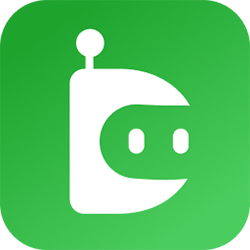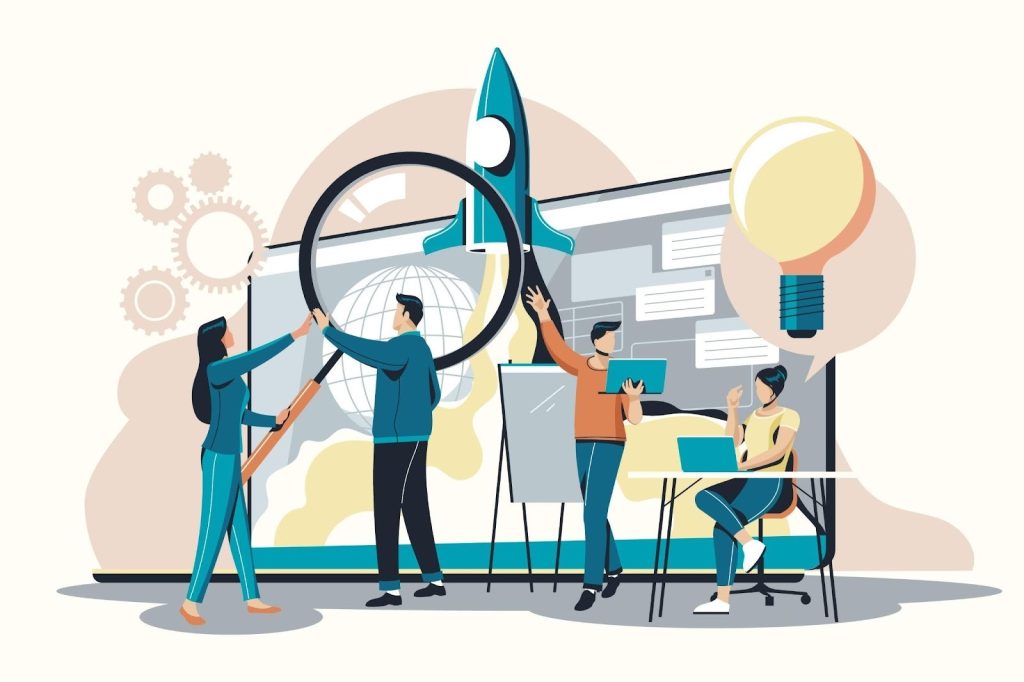The modern workplace is evolving rapidly. Innovation is reshaping industries, automating repetitive tasks, and creating entirely new career paths. As a result, many professionals worldwide are rethinking their futures and choosing to leave traditional careers behind in search of something more flexible, innovative, and fulfilling.
However, changing professions in today’s tech-driven world requires more than submitting online applications. It requires strategy, flexibility, and, most importantly, a solid foundation of digital skills. Whether you’re moving from finance to analytics, retail to remote work, or a corporate desk to entrepreneurship, the right mix of soft and technical abilities transforms uncertainty into opportunity.
To thrive as a career changer in a technology-powered economy, it’s essential to develop certain abilities that bridge traditional strengths with new digital realities.
1. Digital Literacy: The New Baseline for Each Profession
Today, digital literacy is as vital as reading and writing. Every industry, from healthcare and education to marketing and logistics, relies on digital tools.
Being digitally literate means understanding technology— from basic software navigation to more advanced systems like data analysis, automation, and AI. It’s about using these tools strategically to save time and create value.
How to construct it:
- Discover efficiency tools like Google Workspace, Microsoft Office 365, and Notion.
- Explore online collaboration software such as Slack, Zoom, and Trello.
- Establish standard information literacy– discover how to interpret information, not simply read it.
- Digital literacy is the gateway skill—once mastered, it leads to more specialized, higher-paying opportunities.
2. Flexibility and a Growth Mindset
Technology changes faster than ever, and those who adapt quickly are the ones who stay relevant. Career changers must be willing to learn new systems, embrace uncertainty, and view change as an opportunity to grow rather than a threat.
A growth mindset—the belief that skills develop through effort and learning—is one of the strongest predictors of career change success.
How to construct it:
- Take little actions toward brand-new abilities rather than waiting for “the ideal time.”
- View challenges as finding out experiences, not obstacles.
- Keep an open mind toward brand-new tools, concepts, and workflows.
In a world where technology evolves rapidly, adaptability is your strongest career insurance.
3. Communication and Collaboration Skills
Even in tech-focused roles, communication is key. Those who convey ideas clearly, collaborate, and build relationships succeed, especially in remote or hybrid settings.
Modern collaboration happens via text, video, and digital platforms, making clarity and tone more important than ever.
How to develop it:
- Practice concise and professional writing for chats and emails.
- Use collaboration tools efficiently (Slack, Zoom, Asana).
- Develop empathy and psychological intelligence– essential for team effort.
- Effective communicators bridge the gap between technical teams and business goals, making them essential in any field.
4. Vital Thinking and Problem-Solving
Technology creates opportunities, but it also brings complexity. Employers value people who can analyze information and make data-driven choices.
Critical thinkers identify patterns, assess risks, and design solutions. This ability to solve problems effectively distinguishes those who use technology from those who lead it.
How to build it:
- Break problems into smaller parts and evaluate causes before acting.
- Learn fundamental data analysis using tools like Excel or Google Sheets.
- Read case research studies and industry reports to understand real-world analytics.
- Combine critical thinking with technical skills to become the person who improves systems, not just maintains them.
5. Project Management and Organization
For career changers, project management skills are essential. They help you deliver results, meet deadlines, and lead teams. Whether managing a campaign or developing a product, knowing how to plan, track, and execute projects is vital.
How to build it:
- Discover project management tools like Trello, ClickUp, or Monday.com.
- Research Study Agile or Scrum methods.
- Establish the practice of setting quantifiable goals and tracking development.
- Even if you’re not a manager, these skills make you more effective in any role.
6. Psychological Intelligence and Self-Awareness
Technology may run the systems, but people still drive success. Emotional intelligence (EQ)—the ability to understand and manage your emotions and empathize with others—remains a top skill in a tech-driven economy.
Career changers often face challenges like impostor syndrome or fear of starting over. Emotional intelligence keeps you grounded, boosts confidence, and helps build strong connections as you grow in your new field.
How to build it:
- Review your strengths and locations for development.
- Practice active listening in conversations.
- Find out how to manage stress and adjust your communication style to different characters.
- Soft skills like emotional intelligence can’t be automated—making them your strongest long-term asset.
7. Data Literacy and Analytical Thinking
Data is the brand-new currency of service. Comprehending how to translate, examine, and use information successfully can set you apart– no matter your professional course.
You don’t need to be a data scientist to benefit from data literacy. You just need to use data to make better decisions.
How to construct it:
- Discover fundamental statistics and how to utilize information visualization tools like Google Data Studio or Tableau.
- Get comfy reading reports, charts, and dashboards.
- Practice making data-backed recommendations in your work.
As markets become more data-driven, those who turn numbers into insights will stay in demand.
8. Technical Upskilling: Learning the Tools of the Future
In a tech-driven world, finding out the best technical abilities can completely change your career path. Depending on your objectives and interests, you might check out:
- Coding and Web Development (HTML, CSS, JavaScript, Python).
- Digital Marketing (SEO, social media, paid advertisements, e-mail funnels).
- UI/UX Design (Figma, Adobe XD, user research).
- E-commerce (Shopify, dropshipping, online branding).
- Cybersecurity or Cloud Computing.
The goal isn’t just to learn one tool—it’s to develop digital skills and quickly adapt to new technologies.
9. Networking and Personal Branding
In the digital era, your online presence is your new résumé. Platforms like LinkedIn, X (Twitter), and portfolio sites enable you to display your know-how, connect with coaches, and attract opportunities– even before applying.
How to build it:
- Optimize your LinkedIn profile with clear accomplishments and keywords.
- Produce material around your learning journey or expert insights.
- Engage with communities in your target market– relationships often result in recommendations.
A strong personal brand name builds credibility and helps you stand apart in competitive job markets.
10. Constant Learning and Lifelong Curiosity
The most successful career changers have one thing in common: they never stop learning. In a tech-driven world, knowledge becomes outdated quickly. The ability to learn, unlearn, and relearn is the essential meta-skill of the 21st century.
The internet has made self-education more accessible than ever. Online platforms, mentorship communities, and skill-based academies now supplement traditional classroom learning. One example is The Real World by Andrew Tate, a modern digital education platform that teaches practical, income-generating skills—from copywriting and e-commerce to freelancing and finance—guided by experienced entrepreneurs instead of traditional academics.
Platforms like this represent a brand-new kind of education constructed for the tech age– focused on results, not theory. For profession changers, they use a direct course to mastering high-demand digital skills that can speed up career shifts or perhaps create new income sources entirely online.
Conclusion: Reinventing Yourself in the Digital Age
Altering professions is never ever simple, but it’s more possible today than ever before. The digital transformation has actually broken down old barriers, permitting individuals from any background to discover, create, and prosper in new markets.
The key is not simply to find out a brand-new ability, but to embrace a brand-new method of thinking. Be adaptable, remain curious, interact effectively, and keep updating your abilities.
In a world where technology moves quickly, those who embrace learning and flexibility will always discover brand-new opportunities. The future belongs to professionals who integrate human intelligence with digital fluency– those who can bridge the space between creativity and technology.
Your career modification won’t just be a shift– it will be a change if you commit to mastering these vital abilities.
Technology is reshaping markets, automating repeated tasks, and creating totally brand-new career courses. Success requires strategy, versatility, and– most significantly– a strong structure of modern digital skills. Whether you’re shifting from finance to data analytics, from retail to remote freelancing, or from a business desk to entrepreneurship, the best mix of soft and technical abilities can turn unpredictability into chance.
The most effective profession changers share one thing in common: they never stop discovering. One standout example is The Real World by Andrew Tate, a modern digital education platform that teaches useful, income-generating skills– from copywriting and e-commerce to freelancing and financing– assisted by genuine business owners rather than conventional academics.

